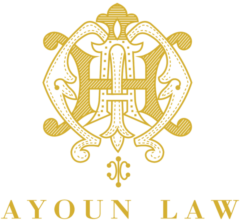Settling an estate involves complex legal, tax and procedural steps. Our experienced team in Churchill Meadows guides executors and beneficiaries through each phase to ensure efficient, compliant administration.
Why Hire an Estate Administration Lawyer in Churchill Meadows
- Ensure compliance with probate requirements and statutory deadlines.
- Handle creditor claims, taxes and court filings accurately.
- Resolve disputes among beneficiaries and avoid litigation.
- Provide clear communication, accounting and reporting to all parties.
- Protect executors from personal liability and streamline estate closure.
Our Estate Administration Services
- Preparing and filing probate or estate trustee applications.
- Managing estate assets, debts and creditor notices.
- Completing required tax returns, clearances and disbursements.
- Drafting estate accounts and providing beneficiary statements.
- Advising on asset transfers and avoiding probate fees strategies.
- Representing executors and beneficiaries in court or mediation.
Common Questions About Estate Administration in Churchill Meadows
How much is an estate lawyer in Ontario?
Estate administration lawyers typically charge hourly rates between $200 and $400, or a flat fee based on estate complexity.
Total fees vary by estate size, asset types and the amount of legal work required.
Who pays for an estate lawyer?
Legal fees are paid from the estate’s assets before distribution to beneficiaries.
If the estate lacks funds, executors may need personal arrangements but reimbursement is prioritized once assets are available.
How long does an executor have to settle an estate in Ontario?
There is no strict deadline; most estates settle within 12–18 months, depending on asset complexity and creditor periods.
Beneficiaries can request accounting and timelines if administration extends unreasonably.
When to hire an estate lawyer?
Engage a lawyer soon after death to navigate probate, creditor claims and tax filings correctly from the start.
Early involvement prevents errors and accelerates estate closure.
What is the normal fee for an executor of a will in Ontario?
Executor fees usually range from 1% to 5% of the estate value, based on complexity and time involved.
Courts may fix fees if beneficiaries dispute proposed compensation.
How to avoid probate fees in Ontario?
Use joint ownership, beneficiary designations and inter vivos trusts to transfer assets outside probate processes.
Proper planning reduces fees, accelerates transfers and maintains privacy.
What happens to a bank account when someone dies without a will?
Accounts are frozen until a court-appointed estate trustee is in place to authorize transactions.
This can delay access to funds for funeral expenses and debt payments.
What type of lawyer is best for wills?
Estate planning or probate lawyers with experience in wills and estate administration offer the best guidance.
Look for practitioners familiar with local probate courts and tax regulations.
Who would be most likely to need an estate law attorney?
Those handling estates with multiple assets, debts, business interests or blended families benefit from legal expertise.
Executors facing disputes or complex distributions should also seek specialized counsel.
Can an executor withhold money from a beneficiary in Ontario?
Executors may temporarily withhold funds to pay debts and taxes before distributing the remainder.
Unjustified withholding can be challenged in court by beneficiaries.
Can an executor sell property without all beneficiaries approving?
Executors can sell assets if authorized by the will or granted court approval, even without unanimous beneficiary consent.
Transparency and fair market procedures protect against claims of misconduct.
Can a house stay in a deceased person’s name in Ontario?
Property remains in the deceased’s name until probate grants the estate trustee authority to transfer or sell it.
Title changes only after the probate certificate is issued.
Do you pay taxes on executor fees in Ontario?
Executor fees are taxable income for the executor and must be reported on their personal tax return.
Estates can deduct reasonable executor fees before calculating net distributable assets.
Who gets paid first from an estate in Canada?
Funeral expenses, debts, taxes and creditor claims are settled before any distributions to beneficiaries.
Following the statutory priority prevents creditor actions against heirs.
Does an executor have to show accounting to beneficiaries in Ontario?
Yes, beneficiaries are entitled to request and review estate accounts to ensure proper administration.
Courts can compel disclosure if executors fail to provide timely accounting.
Contact Us
For clear, efficient estate administration support, contact us at for a confidential consultation.

